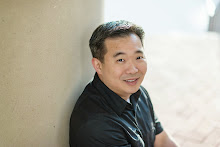So now I'd like to run down some common dental titles that are not true dental specialties. Remember that a true specialty requires extra schooling and a state certification. The following are just titles dentist use to describe their specific interest in the field of dentistry, but they are not allowed to imply they are "specialists" in these interests.
1) Implantologist: The implication is that they "specialize" in the placement of dental implants. Currently, there are no true specialty programs associated with US universities that teach a multi-year curriculum in only dental implants. There is no State licensing exams a dentist has to pass in order to call themselves an "implantologist."
2) Cosmetic Dentist: The implication here is that there is a difference between cosmetic and general dentistry. According to State and National licensing guidelines there is no difference. Every dentist should be a "cosmetic" dentist because all dental work has an aesthetic aspect to it. Now certain dentist have taken the time and effort to take extra continuing education programs in the field of cosmetic dentistry and expand their knowledge of this aspect of dentistry, but it is not implied that cosmetic dentistry is a separate entity from general dentistry.
3) "Practice limited to ...": Some general dentist have limited their practice to only provide treatments associated with any of the true dental specialties. For example Dr. Jon Doe whose practice is limited to endodontics, provides only root canals for his patients. It is important to note that Dr. Doe is actually a general dentist and cannot legally advertise himself as a specialist. A true dental specialist has a degree in the area of specialization and the degree would be listed in the letters following the "D.D.S. or D.M.D" in his/her title.
I should clarify that just because a dentist uses any of the titles listed above, he or she is trying to deceive the public. These are all accepted, legal titles a general dentist may use in the description of his or her practice. I am just listing these to distinguish them from the true dental specialists.
So in conclusion, why are you being referred to a specialist? Well just like our physician colleagues, there are situations where the best possible outcome available to our patients can only be achieved by a specialist in that particular field. A general dentist can legally provide treatment in all fields of dentistry, but the specialist is there as a resource for the dentist and patient for cases that are not considered "traditional" or "straight-forward."
As a general dentist, I see a wide variety of patients and every patient has a different set of dental needs. A specialist only provides one field of treatment so they have the experience and training to provide the best possible care in that field.
The field of dentistry has benefitted greatly from the advancements in materials and technologies to help promote good oral health. Yet as a dentist myself, I've seen that my profession has embraced these new technologies at the risk of spending less time promoting "prevention through education." The truth is the healthiest mouths are not the mouths of the wealthiest people, but rather the mouths of educated people. This blog is my effort to educate the public and promote good oral health.






No comments:
Post a Comment